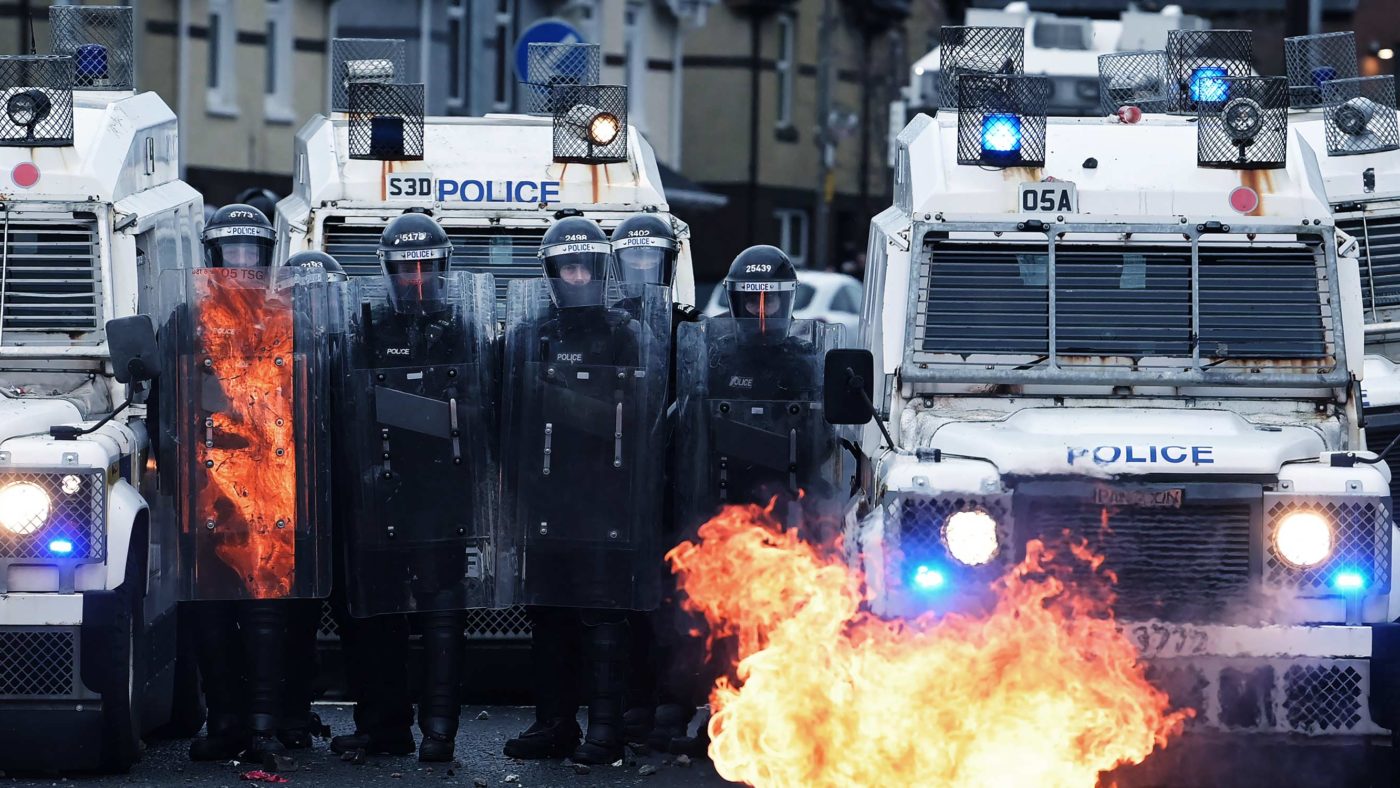At one point during the Brexit negotiations, an EU source told the press that Theresa May should simply inform the Democratic Unionists – upon whom her Government depended for its day-to-day survival – that an Irish Sea border was simply what was going to happen.
Such a dismissive attitude towards the Unionists was nothing new. Indeed, it has been common currency since before Northern Ireland even existed, when Woodrow Wilson simultaneously urged the British Government to bow to the inevitable triumph of the Irish nationalist movement and to hang Sir Edward Carson, whose own nationalist movement dared to defy it.
Yet a century on Wilson is long gone and Northern Ireland is still here. This should give pause to anyone tempted to peddle easy narratives about the futility of Ulster defying ‘the tide of history’. The flotsam of both 1916’s 32-county republic and the Sunningdale Agreement, amongst much else, now drifts on that current. The white foam of unionist discontent marks a more dangerous reef than many seem prepared to believe.
If the poetry isn’t doing it for you, here’s another way to think about it. If you believed that a land border was a threat to the fragile order underpinned by the Belfast Agreement because it would fuel nationalist discontent and republican violence, you had better believe that unionist discontent and loyalist violence could do exactly the same thing.
As far back as 2018, the local press were noting that the EU’s ‘hardline stance’ towards enforcing its external border was forcing liberal and ‘hardline’ unionists, who had taken different sides in the 2016 referendum, together. By 2021, all three capital-U Unionist parties are supporting a legal challenge to the Northern Ireland Protocol, of which I have written before. Meanwhile the umbrella organisation for loyalist paramilitary groups has withdrawn support for the Agreement and now, there are riots.
If that weren’t enough, there is also well justified fury at the local police’s decision not to even seek fines from senior Sinn Fein politicians who flouted lockdown to join thousands of mourners at an unlawful funeral for a PIRA terrorist.
Of course, it might simmer down. Brussels may live up to its fine words about putting the peace first and Lord Frost might succeed in his mission of securing far-reaching changes to the Protocol.
But they might not. And if they don’t, the pressure on unionism’s political leadership is going to be intense. The DUP will be very aware that Jim Allister’s hard-line Traditional Unionist Voice is just waiting to do to them what they did to the Ulster Unionists – and if they’re sharing power with Sinn Fein whilst implementing an Irish Sea border, they’ll be easier targets than David Trimble ever was.
Should they walk out of Stormont, as Sinn Fein did a few years ago, it might not come back. Ultimately, the republicans were usually gunning for more powers, more money, or both – gifts a negligent Westminster will normally be glad to bestow, and thus hoist the Northern Ireland Assembly to its feet for another year or two.
If the Protocol really is immovable, devolution might founder on it, not because the DUP leadership want that to happen but because that’s where their voters are.
Of course, the rules could be changed so that unionist participation is no longer essential. The Alliance Party are cheerleaders for ‘voluntary coalition’, and the principle has already been conceded when the need for cross-community consent for the Protocol was removed from the Stormont ‘veto’ – a move which, as one ex-Irish diplomat points out, “runs directly against a key element of the internal balances within Strand One of the Good Friday Agreement”.
Another example of how, when it comes to the Belfast Agreement’s provisions for unionists, all that is solid seems so often to melt into air, and an approach that seems extremely unlikely to do anything except drive more people into the arms of the TUV, or the Combined Loyalist Military Command.
The latter is an ugly spectre that has no place in democratic politics. But when the threat of republican violence was levelled with such apparent effect against the prospect of a land border, it is no surprise that their loyalist counterparts took note. The pass on this was sold years ago, by people who confused the ongoing appeasement of dissidents for an honourable peace.
Which leaves yet another grand compromise. Shoring up unionist confidence in the Belfast Agreement was probably not the task Boris Johnson thought he was setting himself when he appointed himself Minister for the Union. But it falls to him nonetheless. As he almost certainly doesn’t have a plan for Northern Ireland himself, it is vital that he supports, and if necessary recruits, people who do.
If not, his premiership could be the latest wreck to adorn Carson’s fearsome reef.
Click here to subscribe to our daily briefing – the best pieces from CapX and across the web.
CapX depends on the generosity of its readers. If you value what we do, please consider making a donation.


